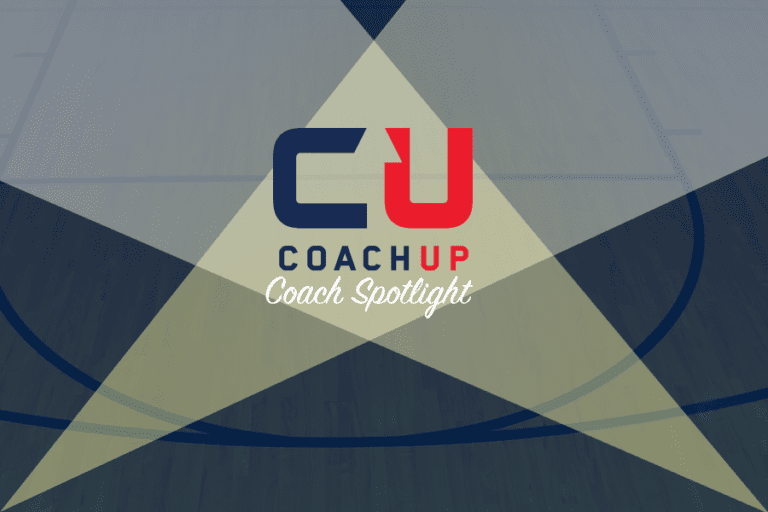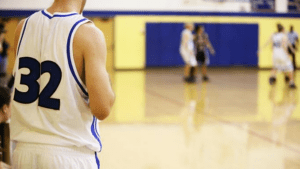We’re really excited to bring you our newest Coach Spotlight as we’re traveling to Austin, Texas to chat with soccer coach Jesse Jordan. Coach Jesse has loads of experience, talent, and knowledge from his decades worth of coaching and playing the beautiful game. As always, please consider booking Coach Jesse if you’re lucky enough to be in his area — but if you’re a coach or parent, don’t be afraid to ask yourself questions and reflect on his thoughtful answers. Are you doing all you can to make this a positive experience for your athletes? So, without further ado, we bring you Coach Jesse — enjoy!
CoachUp: Hey, Coach Jesse! Congrats on being selected for our Spotlight! First, can you tell us about yourself and your experience with soccer?
Jesse Jordan: I’ve been involved in soccer for the majority of my life. Even now, it is an honor to be involved in the sport as both a player and a coach. I began playing soccer when I was just six-years old and haven’t stopped loving the game since. I have over 30 years of soccer experience including seven years of coaching with organizations such as Brentwood Christian School (BCS), CC United Soccer Club, Lifetime Fitness, and Lonestar Soccer Club of Austin; additionally, I’ve been a USSF certified coach since 2008. In high school, I played for Mesquite High, but also in the North Texas United Leagues, as well as Select Soccer for Ajax and Select Soccer for Celtic. In college, I played intercollegiate club soccer at Harding University and participated in many intramural clubs along the way. Over the years, I’ve also played in various adult indoor + outdoor leagues in both Arkansas and Texas. I was invited to Charlotte Eagles (USL-Pro) & Southern California Seahorses (USL-PDL) tryouts in 2003. And, even just last year, I was invited to Dallas Sidekicks (Arena-Pro) tryouts in 2014. These days, however, I currently play in the Austin Coed Soccer Association.
 CU: What is your coaching style or philosophy?
CU: What is your coaching style or philosophy?
JJ: As it is with any major commitment to a sport, younger athletes often get burnt out and quit before they reach their true potential. In turn, I want my athletes to work hard and have fun! I believe athletes that are coachable and willing to work hard will enjoy the game, give more effort, and increase their overall skills. At the crux of my lessons, I teach the fundamentals and techniques first, then tactics. As a Double-Goal Coach with Positive Coaching Alliance, I strive to teach the goal of winning as an athlete with progresses and effort at the focus, rather than only striving for the scoreboard definition of a winner. I teach athletes how to focus on what they can control, mastery of their own soccer skills, and a winning attitude alongside their best effort. If athletes give me a constant willingness to learn + improve and a determination to bounce back from mistakes, they’ll find success sooner rather than later. More importantly, I can teach the goal of growing, learning, and understanding life’s most important lessons through the game of soccer. I strive to help the athletes succeed in life outside of the field because those lessons will stick with them forever.
CU: What can a client expect from private lessons with you?
JJ: As a private coach, I enjoy the opportunity to be able to fine tune my sessions to fit each individual athlete’s skill set so we can start accomplishing goals. For every one hour session, I spend 1-2 hours preparing lesson plans + drills. I start off my practices and training sessions with stretching & soccer-specific warm-up drills + techniques. My training activities include: speed, agility, quickness, endurance, techniques+ tactics, aerobic + anaerobic fitness, strength, power, and balance, so whatever you need to focus on, we can tailor the session towards that.
CU: Can you describe any big or little “wins” that you’ve had with the athletes that you train?
JJ: I witness little wins when the athletes I coach improve and gain a better understanding of a drill, skill, or the game of soccer as a whole. The big wins I experience happen over the course of time through my evaluations and discussions with an athlete or parent about progression + performance. Ultimately, those big wins may seem like the most important to achieve, but I promise you that the smallest of wins are just as important in the grand scheme of things. In terms of recent successes, I had been working with an athlete on better finishing and scoring, while things moved slow for a little while, the hard work and repetition paid off as they just scored their first game-winning goal!
CU: What is your favorite moment in your athletic career?
JJ: I’d have to say my most favorite moment in my athletic career was in a crucial championship game. I played forward all season, but thanks to some key injuries, I was needed on defense for the game. Unfortunately, we were down 1-0 at halftime because of an unlucky own goal I scored off my knee on a corner kick, but it was devastating nonetheless. Earlier in the season, my coach had asked me what my goals were that I wanted to achieve, I remember saying that I wanted to lead the team in scoring + wanted to score a hat trick in the championship game. With that in mind, my coach put me in at forward for the 2nd half. Long story short, I scored the equalizer and the game-winning goals to give my team the championship. Even cooler, I accomplished my two goals at the end of the day — I led my team in scoring and I guess you could even say I scored my hat trick in the championship!
CU: What’s the most important advice you give to your athletes?
JJ: At the end of the day, the most important advice I give my athletes is that you must not take your life and the ability you have to compete in athletics for granted. As a cancer survivor & founder of a Childhood Cancer Fund, I volunteer with many children that are battling cancer & blood disorders. Many of them are not able to participate in sports while going through treatment and even years after treatment. When you think about it, your playing career is just a relatively short chunk of your lifetime, so make it count! Give your best effort. Remember and embrace the ROOTS system — or, your massive respect for the Rules, Opponents, Officials, Teammates, and Self. Try to understand the importance of setting a good example for your teammates and parents. No matter what others may do, I will show respect for all involved in the game including coaches, players, opponents, opposing fans, and officials. Understand that officials make mistakes, they are human, after all. Additionally, if the official makes a bad call against your team, honor the game and be silent. You’re not only representing your teammates, but also your coach, parents, school, and community as well. Be coachable and willing to learn + improve. Don’t worry about mistakes, or fear making one. My hope is that your experience with my coaching will mean something and make an impact on your life in some tangible way. I’m not perfect, but I will always give my best — I’m asking you to do the same! And, athletes, I leave you with this nugget of advice: during practice, if you don’t like doing a specific drill, exercise, or workout, that mean it’s probably good for you and your game, so don’t quit, push harder!
CU: What’s the most important advice you’d give to other coaches? To athlete’s parents?
JJ: The most important thing a coach can do is avoid placing too much emphasis on winning games and highlighting the ‘win-at-all-costs’ culture as this is unsustainable, ultimately leading to burnout and resentment. When an athlete looks at the sideline during a game, they’re looking at their coaches and parents as role models. When these role models show negative body language, it sends a message and creates a lasting impact on the athletes. For parents, be patient with your child and coach — success is not immediate and it takes time for athletes to progress at their own pace. Most importantly, let your children know that you love and support them regardless of their performance. They are just kids and it’s just a game. Your children are not always athletes, so be sure to allow that switch to be flipped when they’re at home or when they don’t want to play. Thanks again to Coach Jesse for his wonderful and thoughtful answers! His answers should help you get a better understanding of the sport, no matter if you’re a coach, athlete, or parent. Go check out Coach Jesse’s profile here and start growing your skills and fundamentals today!
How useful was this post?
Click on a star to rate it!
Average rating 0 / 5. Vote count: 0
No votes so far! Be the first to rate this post.



